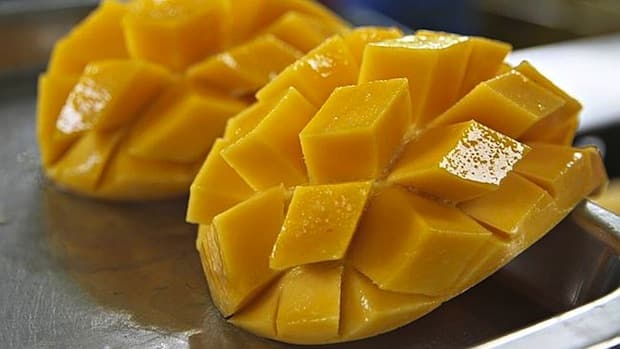First came seedless grapes. Now, Indian scientists have developed what could be the ultimate delicacy – a seedless mango which is finely textured and juicy, with a rich, sweet and distinctive flavour when mature.

“We have developed a seedless mango variety from hybrids of mango varieties Ratna and Alphonso,” said V.B. Patel,chairman of the horticulture department at the Bihar Agriculture University(BAU) at Sabour in Bhagalpur district.
Trials of the new variety, named Sindhu, are under way at different locations in the country but the result of the one at BAU suggests it could be suitable for both integrated horticulture and kitchen gardening.
“We are happy and enthuastic as well as confident and hopeful of improving the seedless mango variety,” Patel said.
He said that an average fruit weighs 200 grams and its pulp, which is yellowish in colour, has less fibre than other mango varieties.
He said the trials of the Sindhu variety, originally developed at the regional fruit research station of the Konkan Krishi Vidyapeeth at Dapoli in Maharashtra’s Konkan region, has thrown up good fruiting on a three-year-old plant this year. It generally grows in bunch and the fruit matures in the middle of July.
BAU vice chancellor M.L. Choudhary said the university has, on an experimental basis, decided to recreate plants of this variety and make them available to Bihar’s mango growers during the next season.
“The seedless variety also has good export potential. The university would provide quality plants to mango growers in 2015 to explot the export market,” he added.
Patel said our trial has successfully established that seedless mango could be grown in local condition.
According to the National Horticulture Mission (NHM), Bihar ranks third in mango cultivation and covers about 50 percent – a little over 38,000 hectares – of the total fruit area in the state. The produce last year was in the region of 1.5 million tonnes.
Malda, Mallika, Jardaloo, Gulabkhas, Bumbai, Daseri and Chausa are major mango varieties grown in the state.
But, then, no longer will one be able to utter this Indian homily: “Aam khana hai ya gutli gin ni hai” losely translated as “Do you want to eat mangoes or count the seeds” but in reality meaning ‘Don’t look a gift horse in the mouth’.
And, there are many who will lament being denied the pleasure of licking the seed clean of the fruit.
As they say, you just can’t win them all!




